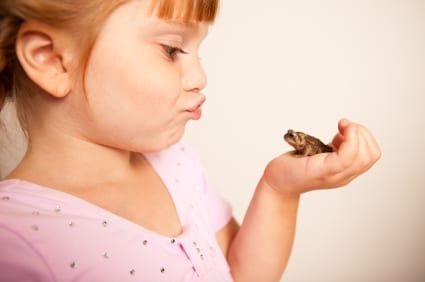 I have two daughters. Between three to five both went through utterly insane “princess” phases. You know, periods during which they SLEPT in the itchy blue Cinderella dress and showered in the excruciatingly painful, lethally-slippery glass slippers (which were actually made out of plastic)?
I have two daughters. Between three to five both went through utterly insane “princess” phases. You know, periods during which they SLEPT in the itchy blue Cinderella dress and showered in the excruciatingly painful, lethally-slippery glass slippers (which were actually made out of plastic)?
Apparently my girls are not alone. They are part of an American marketing tsunami, according to a smart new book exploring the “princessification” of American girls: Cinderella Ate My Daughter. The author is Peggy Orenstein, who also wrote Waiting for Daisy and Schoolgirls. Orenstein lives in Berkeley, California, and has received awards from the National Women’s Political Caucus of California and Planned Parenthood Federation of America. Most definitely a feminist expert on all things girly-girl. The book is filled with thousands of words exploring the innumerable ways marketers sell princess products. The sexualization of girls by the media. The complicity of parents.
The seduction and deception perpetrated by young tv idols like Miley Cyrus, Jamie Lynn Spears, Demi Lovato and Lindsay Lohan once they surreptitiously hand in their promise rings for stripper poles.
The princess conspiracy cuts far deeper than pink tiaras, Orenstein explained recently on The Diane Rehm Show. Research suggests that obsession with all things princessy might lead to parents’ worst nightmares: an escalation to eating disorders, depression, distorted body image, risky sexual behavior, sexting, Facebook abuse, and lifelong self-esteem issues. Serious problems none of us ever want our children to face.
I’d do anything to help my kids avoid life-threatening psychological problems. I’m not a fan of fairy tales or tv-stars-turned-slutty-celebrities. The baggage outweighs the benefits: Snow White awakens with kiss of a prince; The Little Mermaid gives up her voice to be with a man; Lindsay Lohan and Jamie Lynn trade god-given talent for teenage excess…It’s hard for an evolved mom in 2011 to champion these pastel fantasies.
However, parenthood and panic don’t mix well. Forget about raising an "ideal" daughter. There is no such thing. Kids are kids. They are not sociology experiments or political statements. Our daughters are not born to prove correct our college thesis on gender warfare.
The princess phase is just a phase (as long as parents don’t become overly invested in toddler beauty pageants or kiddie porn). Perfectly sound, lovely girls do weird things as five year olds, preteens and teenagers. Some measure of these dreaded problems seems suspiciously…normal. Even though many of us moms know, all too well, the pitfalls of princessification, I’m not certain the princess phase is something we should force our daughters to avoid.
In fact, your daughter can learn a lot about herself by going through these phases. Especially with you there to cheer her on as the unique girl she is – rather than the stereotype the dress, the Hannah Montana movie or Kesha lyrics try to make her into.
At five, my older daughter insisted on being Barbie for Halloween. She picked out a beautiful shimmery pink leotard with layers of multi-colored tulle skirts attached. (If it had come in my size I would have worn one too.)
Then on October 30 she announced she was adding one accessory: bloody vampire fangs. She was now Princess Barbie Vampire. Some parents might have freaked. The other kindergarteners were slightly frightened by her getup. After all, when have you seen Barbie with fangs? But I thought my daughter was onto something. Fangs are exactly what Barbie always needed. You go, girl!
You can’t go wrong by focusing on your daughter (or son) as an individual-not part of a trend, not an extension of your hard-won dogma. All the surveys in the world can’t capture your child’s unique development. No parent should stop a daughter from discovering herself or the world, no matter what self-help books dictate.
A pink dress worn obsessively at age five does not mean my girls risk becoming bulimic at 15, no matter what any survey predicts. My daughters may just become stronger from having endured a few phases; I’ve yet to find a survey to measure THAT. I hope that along with the princess slippers, I’ve slipped my girls some killer wisdom about the joys of being a girl and a woman — more realistic messages that drown out the princess hyperbole.
We moms may not feel like experts on anything, but we are the experts on our children. Maybe she needs an American Girl doll to feel like one of the girls. Maybe she needs you to say no more American Girl dolls. Maybe she should wear a little lipstick to fourth grade. Maybe she needs you to make the rule that she can’t. Does she need more time alone with you, less time alone with you, independence and responsibility, limits imposed from above? It’s not about what you need, or what our culture needs. It’s all about what SHE needs.
See, this is the hard thing about parenting: one size never fits all. As for my girls, I was happy to see them wearing the scratchy Cinderella dress and the painful glass slippers. I figured it was good for them to learn early on just how uncomfortable it is to be a princess.





